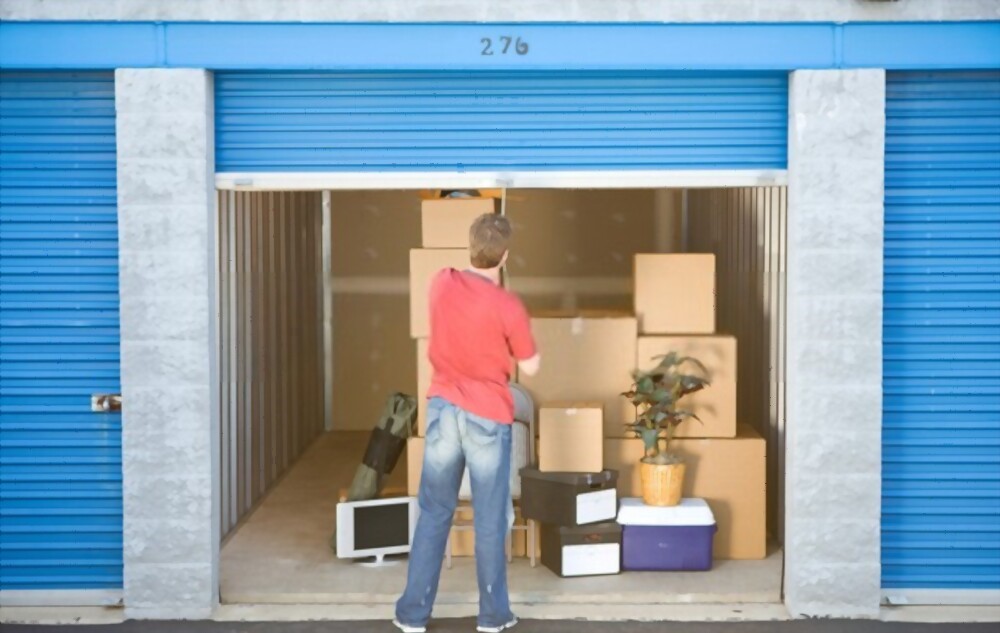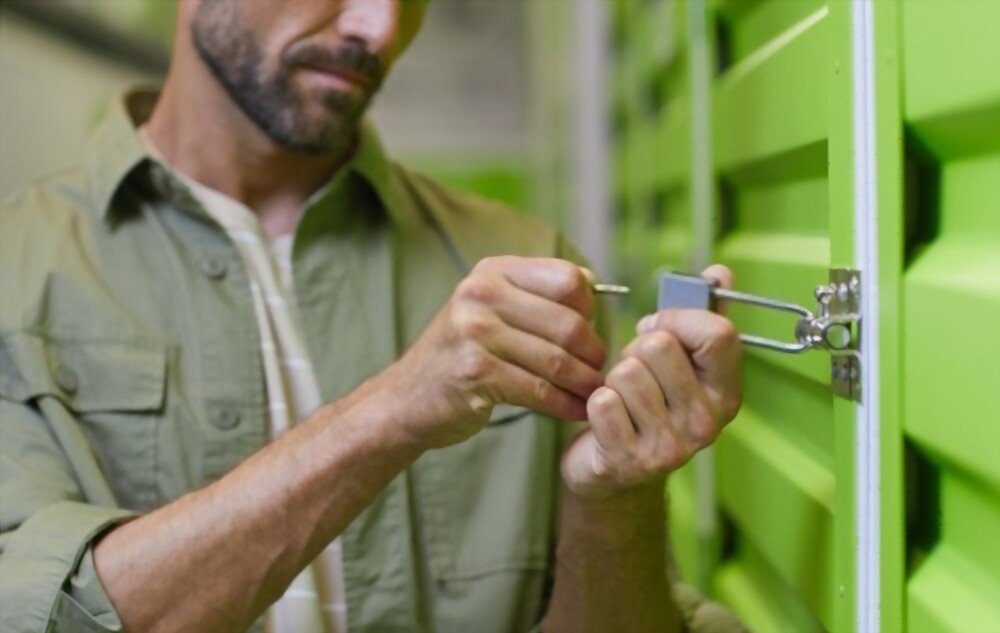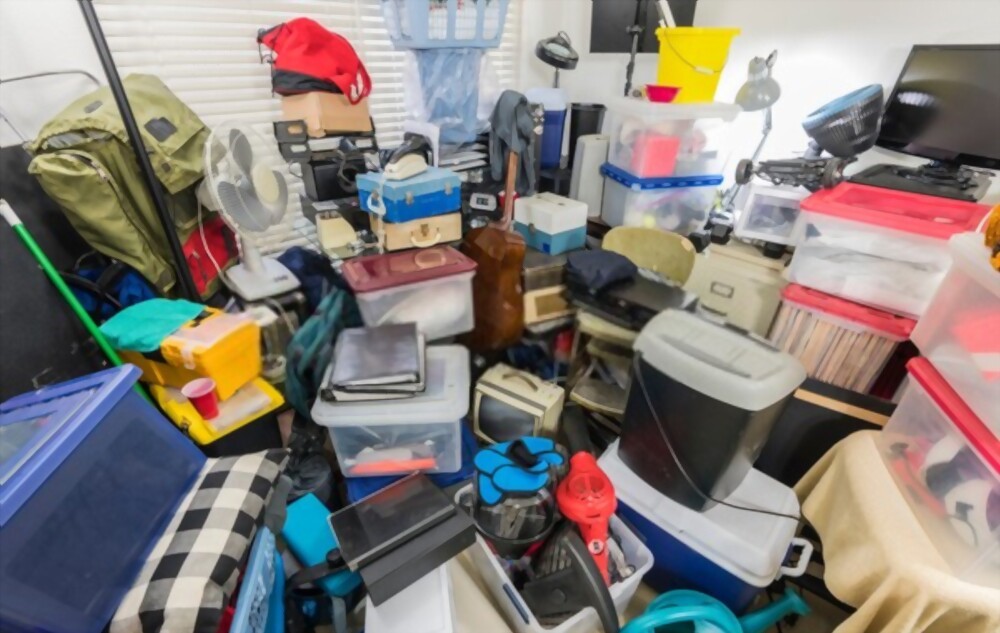A combination of rising rent prices, unusual situations, and the simplicity of such an environment has led some people to consider living in a storage unit. But what does living in a storage unit mean versus simply using one for storing items?
In this blog post, we’ll explore the reality of individuals attempting to reside long-term in their units. We will discuss why living in a storage unit in Port St Lucie is illegal and how dangerous the conditions these individuals may face daily.
Ultimately, this discussion serves as an eye-opening reminder and a cautionary tale about buying into unconventional housing arrangements!
Why are People Living in a Storage Unit?

Researchers recommend allocating no more than 30% of your monthly gross income toward rent prices.
Are you aware of the fact that real-world events seldom conform to statistical standards? If you’re renting in a place like San Francisco or New York, where rents are through the roof.
You can pay $3,000 per month for a rented flat that your homeowner insists a one-bedroom, yet you know there is really a unit. The high cost of housing means that most people’s disposable income goes toward covering rent and utilities.
It’s no longer necessary to choose between heading out on the weekend and purchasing a new vehicle due to a lack of funds. Now, you must decide between buying food and keeping the lights on.
You worry about losing everything if something unexpected happens, just like 66 % of Americans. It’s tempting to contemplate living in a storage unit if you’re having trouble making ends meet and housing costs are the primary factor in your financial difficulties.
The cost of a storage unit is lower than renting an apartment, even in the most costly storage marketplaces. If you currently rent a one-bedroom flat in California for $2,500 per month but have a second bedroom that you don’t use, you might save around $2,300 per year by storing your stuff in a 10′ x 10′ unit.
In 2023, a typical apartment in Port Saint Lucie, Florida, will set you back between $1,985 and $2,343. However, a self-storage unit in Port St. Lucie, Florida, costing a total of $128.09, was the most expensive for the last 180 days.
This illustrates how much cheaper it may be to live in a storage unit than rent an apartment, but is it legal and safe?
Is Living in a Storage Unit Illegal?

Living in a storage unit is illegal and can cause severe health and safety issues. Living in a storage unit is in Port St Lucie illegal on both a state and federal level.
In reality, these statutes make it the responsibility of every storage unit’s owner to remove any occupants who have set up permanent residence there. To top it all off, you’ll be breaking the terms of your agreement. Most storage unit leases will include a condition that states you can’t really live there.
Nowadays, it’s common practice for storage facility proprietors to install security and monitoring cameras inside and outside their facilities.
Therefore, the possibility of being apprehended is quite high. What’s more, being busted will result in legal repercussions.
Depending on the situation and the jurisdiction, these penalties may range from fines to community service or even jail time.
Hence, staying in a storage unit for more than three days is illegal. The cops may legally remove you from a building after three days.
Why Is It Unsafe To Live in a Storage Unit?

Although living in a storage unit can be a tempting solution when finances are tight, it’s an unsafe and dangerous due to the following reasons:
1. Lack Of Basic Facilities
Storage units don’t come with any essential services such as electricity, running water, or sanitation. This means that you are dependent on direct sources like generators or burning candles for light and heat, as well as sourcing water from outside.
2. You Can Get Locked Inside
Storage units are generally secured with locks, which means that even if you have access to the key, you can get locked inside in an emergency.
This can be particularly dangerous if a fire, flood, or other disaster occurs. If you cannot get out, you may be entrapped and unable to call for help.
3. Unsanitary Conditions
Due to the lack of running water and toilets, storage units can quickly become unsanitary. This increases the risk of contracting serious illnesses or infections.
Some storage units may also be infested with rats, cockroaches, and other pests due to their lack of cleanliness.
4. Crime
Living in a storage facility can also expose you to crime. As these units are generally unmonitored, criminals may use them as a base of operations. Furthermore, burglars may target these units if they know someone is living in them.
5. Extreme Temperatures
Storage units are not climate controlled, meaning they can become extremely hot or cold. This can cause serious health issues, particularly if you are elderly or have a pre-existing medical condition.
Often, you won’t have access to air-conditioning or heating either. Also, climate-controlled storage units are often maintained at roughly 55 degrees in the winter to save utility expenditures without compromising item preservation.
However, without any kind of climate regulation, temperatures within a unit may drop below freezing or soar into the hundreds, both potentially lethal for people.
Family Storage Space – Your Best Choice Storage for 20+ Years.
Storage units are a great way to store your excess belongings and keep them safe; however, they should not be used as living spaces. Storage units should only be used for their intended purpose, to store items and not as a place to live.
Family Storage Space in Port St Lucie offers a variety of storage units for 20 years, in different sizes with all the features you need to store your items safely and securely.
In addition, they provide 24-hour surveillance for our customers’ peace of mind and climate-controlled units for optimal temperature regulation.
Contact Family Storage Space today at (772) 337-9199 to find out more about their storage solutions!
